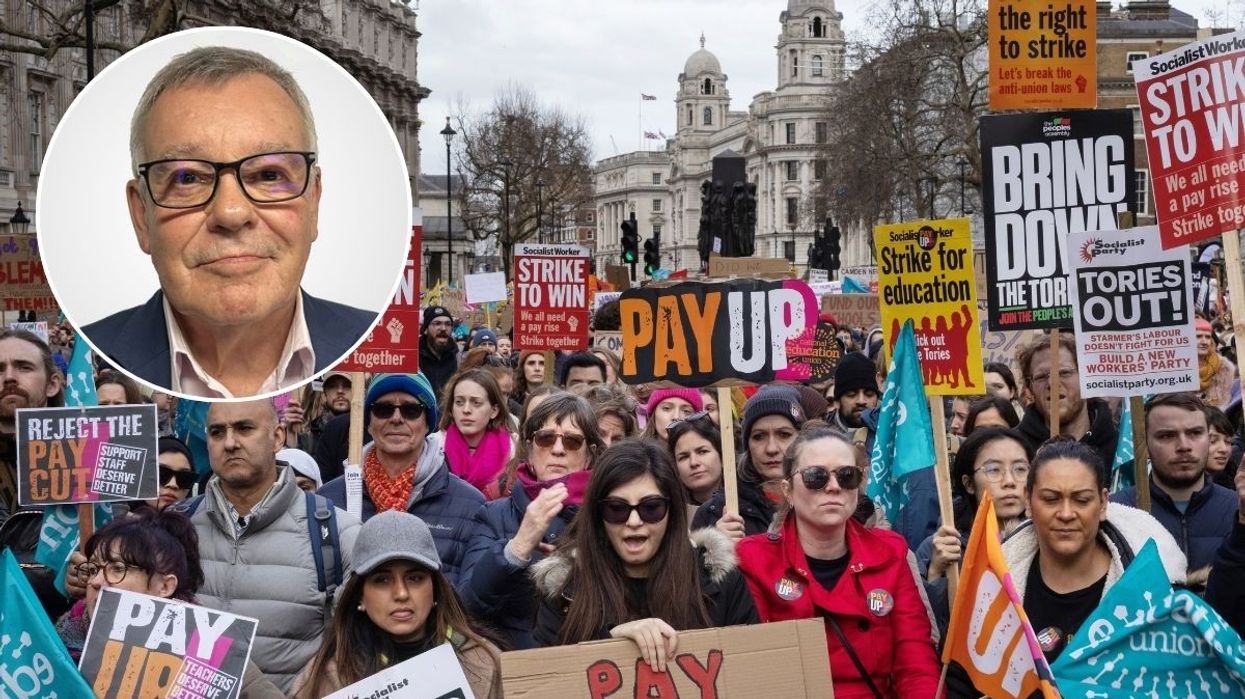'Enshrining fair treatment of employees in law means fewer but not an end to strikes,' says Nigel Nelson

'Enshrining the fair treatment of employees in law means they will be more loyal, stay longer and work harder,' says Nigel Nelson
|GB News/ Getty

Nigel Nelson is a GB News commentator
Don't Miss
Most Read
Textile worker Martha Appleton was just 13 in 1859 when she caught her hand in a mechanised loom and lost all five fingers. The mill owner promptly sacked her.
She was no longer of any use to him as one of the “scavengers”, the children whose job it was to collect loose cotton gathering under machinery.
Harsh though her treatment appears today, Martha may have considered herself fortunate as other children were crushed to death as they went about their work.
Child labour was the backbone of the Industrial Revolution, and those doing the labouring were as young as eight. They were cheap, and small enough to get into spaces adults could not reach such as narrow tunnels in coal mines or up chimneys to sweep them.
Victorian reformers managed to raise the minimum age of employment to nine and limit shifts to ten hours but, according to this month's BBC History Extra, it was not until 1901 that child labour was banned for under 12s.
As workers began to organise collectively conditions improved, but that did not stop bosses howling about it each step of the way.
They also squealed when Britain abolished the slave trade in 1807 and again in 1833 when slavery itself was eradicated in the British Empire.
To quieten them down the Government borrowed £20 million to compensate them for their lost “property”. This was a gigantic sum, roughly £17 billion in today’s money, and represented 40 per cent of the Treasury’s annual income.
Today’s taxpayers should reflect that it took until 2015 to finally pay this debt off so anyone coughing up taxes before then was helping to finance the lavish lifestyles some of those former slave families still enjoy.
It is hard to think of an improvement in worker rights that business owners haven’t moaned about when it costs them money. It took years before Labour felt confident enough to introduce a national minimum wage of £3.20 an hour in 1999.
Tory leader Michael Howard predicted it would cost between 750,000 to 2,000,000 jobs which was poppycock, and eventually even the Confederation of British Industry dropped its opposition.
Now we hear similar squawking as Labour presses ahead with plans to abolish minimum service levels. This was introduced last year by the Tories to break strikes by forcing some workers to cross picket lines.
Withdrawing labour should always be a last resort and not a first response, the final tool in the unionised worker’s collective bargaining box. When I was the journalistic equivalent of a shop steward I felt it would be a personal failure if a strike was called.
And I would have resigned my position immediately after successfully leading one. There were no strikes on my watch. But negotiations would have come to nothing unless the threat was there in the background.
The freedom to strike is a democratic right and, frustrating though it is for those inconvenienced by a shutdown, it is almost pointless if the service you’re trying to stop has enough workers to keep functioning.
The sectors affected by minimum service levels include border security, ambulance crews, fire and rescue, teachers and rail workers. It did not just poison workplace relations but was so ill-thought that it had no hope of being effective.
It was never used, and only the train operator London and North Eastern Railway threatened it earlier this year when drivers union Aslef announced a one-day stoppage.
Had LNER persisted Aslef would have turned a one-day strike into five days so the company backed down. Cabinet ministers have now been told to ignore this toxic law and keep it locked away until it can formally be repealed later this year.
It is the first of several measures to make industrial relations fairer to all sides and should discourage strikes rather than provoke them.
LATEST OPINION:
Royal College of Nursing General Secretary Nicola Ranger said: “The Government must continue on this mature approach to relations with public sector workers and their representatives.”
Usdaw leader Paddy Lillis added: “This draconian, unworkable piece of legislation was an ideological attack on working people’s ability to defend their pay, terms and conditions.
“Far from preventing strikes, it risked escalating disputes and ultimately harming public services and the economy.”
Workplaces have improved considerably since Martha Appleton was maimed in one, and most bosses are not bad - nor are all union leaders good.
But enshrining the fair treatment of employees in law means they will be more loyal, stay longer and work harder.
It would be too much to hope this will end all strikes, but the Government’s new grown-up approach should mean far fewer of them.










